I grew up not just in one, but in a number of communities around the western United States. After moving from San Diego with my parents in the early 90’s (a sharp economic decline and my father being in the construction business and all), we moved to the great Northwest. The people etched into my memory greeted others with a handshake, wore denim suspenders, had oil in their knuckles, ate pancakes on Saturday at a non-nationally distributed eatery and didn’t mince words. They were not unnecessarily crude or unkind, just honest and pragmatic.
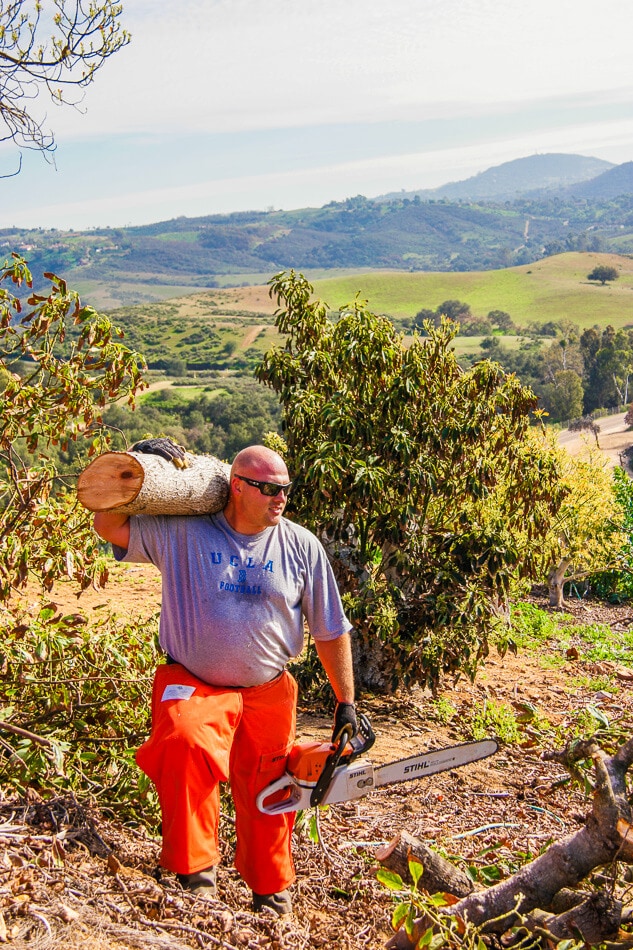
Having moved as much as I did (about eight relocations by the time I went to college), I had the advantage of sampling different communities, their values and general outlooks. This did NOT, however, help me in middle and high school as I was always seen as the odd (quoted in yearbook as “weird”) one never fully conforming to my generation. This wasn’t for a lack of trying but to me, it was similar to moving to a new country and never quite getting the local lingo down. High School’s a bitch.

In the long run however, I had it in spades. One important lesson I learned was that being a good neighbor (not just door-to-door but even throughout the town) meant not operating on a quid pro quo way of thinking. Humanity does not operate on a readily apparent and predictable course. Unlike Sir Isaac Newton’s third law of motion, – ‘for every action, there is an equal and opposite reaction’ – no matter what you do for someone, you can’t expect any type of reciprocity. I also learned that if you do go in with expectations, the only guarantee is a feeling of inequity.
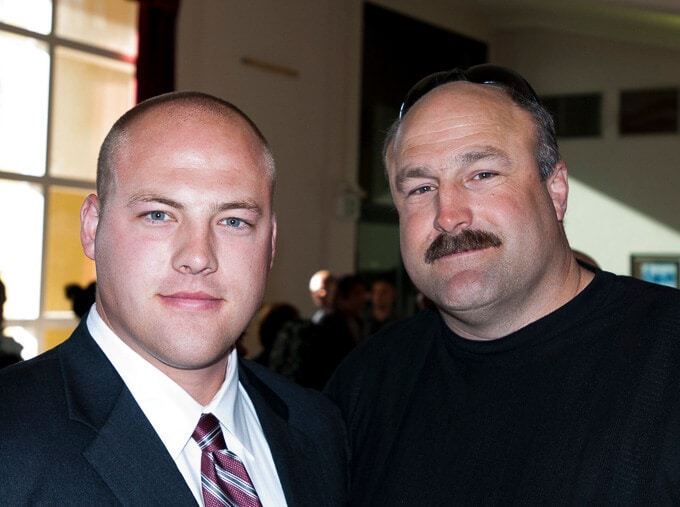
Now, my father. He was the keel. Keeping my sailboat upright in fair weather and storm. And through the storm, he always ensured I knew…or at least knew how to find…the right way up.
One Northwest storm in particular, I learned the value of unspoken community. If you were to meet my father, he’d tell you upfront that he’s not a fan of people. Not a recluse, he just knows their limitations and has learned not to expect much from them. But that doesn’t stop him from helping others, even when they don’t know it’s him.
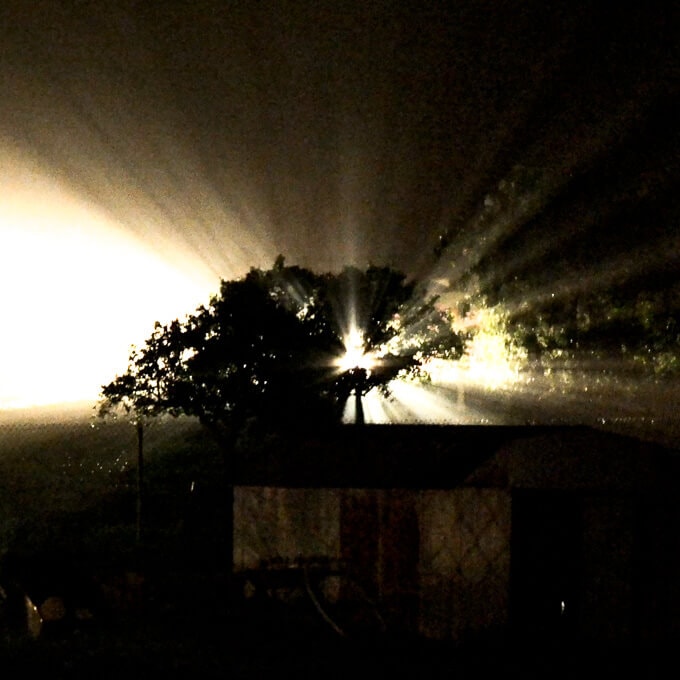
The wind blew, the rain fell and the clouds lorded over the forests below. It was early morning when I remember my father getting my brother and I loaded up in his little pickup. He headed off, down the forest-lined roads, only following his headlights. He drove up and down, down one road and then another seemingly without a specific destination in mind. Then we found what he was looking for.
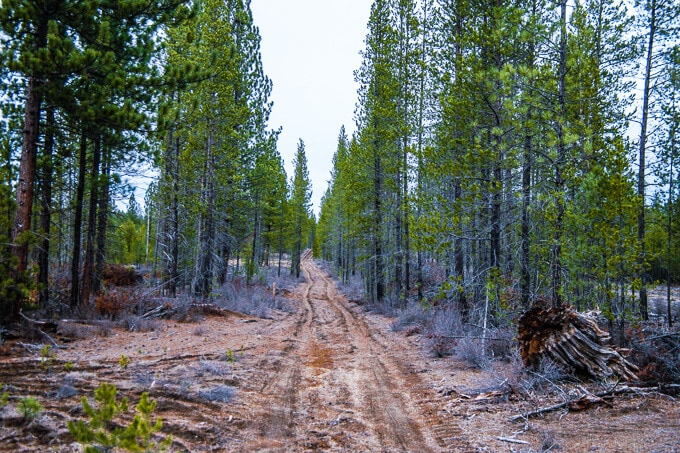
The ball of dirt and peat moss bound around the roots was larger than my brother and I hand in hand. The sun had barely hit the clouded horizon and the spooky wooded glow was all that accompanied the yellowish tinge of his pickup’s headlights. He pulled off to the side, turned on the hazard lights and told my brother and I to stay put. Not a difficult instruction with the rain still softly falling on the cool morning asphalt.
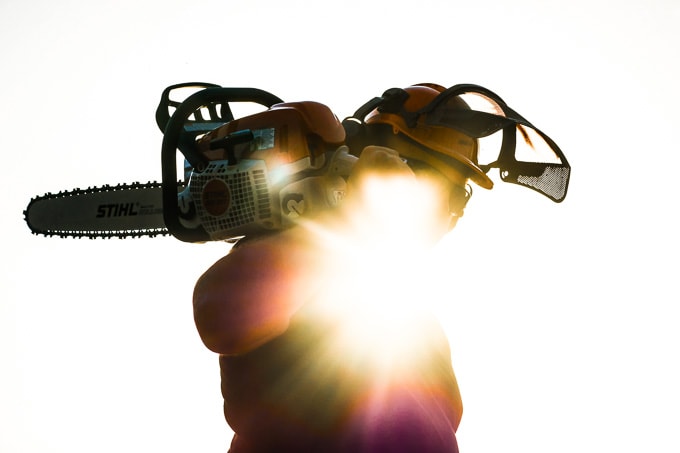
He quickly retreated to the bed and charged forth with his STIHL chainsaw. We were not a family above the median economic lines, and my brother and I knew this was one of his prized possessions. We watched as he made cut after cut in the rain. He urgently pulled the cut timber away from the dark lanes and threw the now irrelevant road block off into the woods where it had come.
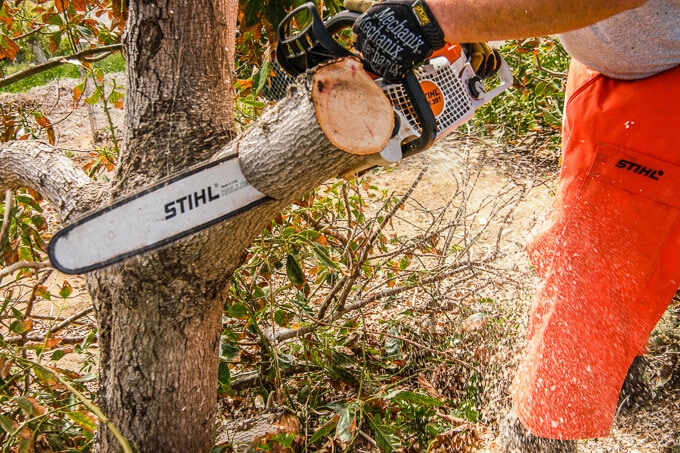
Looking back, I realize that most of our community here in southern California today would use their cell phone and call for the county to come clear the road. Back then, no one had cell phones to call for help (especially if they had crashed into the downed tree). The only person out doing something was my father with his STIHL. No expectations. No audience. Just a sense of community.
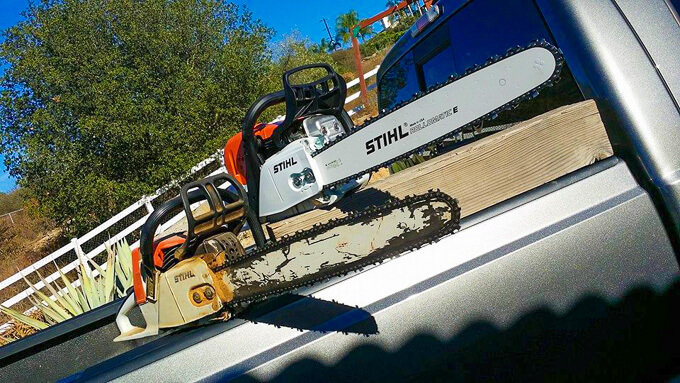
Now, I’ve grown up a bit. Part of my being a father is knowing I have lessons that I must pass down to my three sons. I was giddy the day I got to get my own STIHL chainsaw. I knew that not only did I get to have a piece of my father’s history, but my sons would get a piece of mine.
